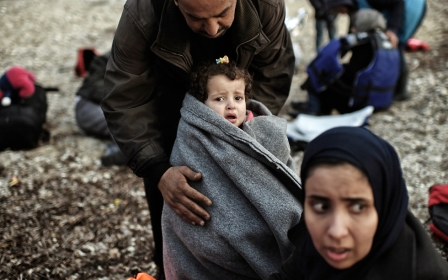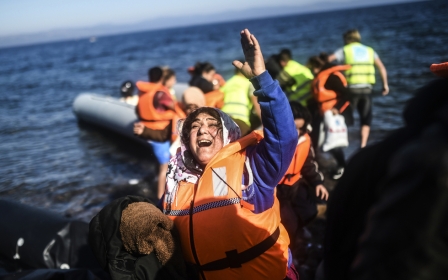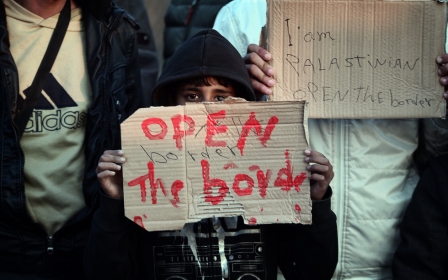UN agency slams new Greek refugee 'detention facilities'

The UN refugee agency on Tuesday harshly criticised an EU-Turkey deal on curbing the influx of migrants to Greece, saying reception centres had become "detention facilities," and suspended some activities in the country.
"Under the new provisions, these sites have now become detention facilities," the UNHCR said. "Accordingly, and in line with our policy on opposing mandatory detention, we have suspended some of our activities at all closed centres on the islands," it added.
The EU and Ankara struck a deal on Friday aiming to cut off the sea crossing from Turkey to the Greek islands that enabled 850,000 people to pour into Europe last year, many of them fleeing the brutal war in Syria.
The agreement, under which all migrants landing on the Greek islands face being sent back to Turkey, went into effect early on Sunday.
"UNHCR is not a party to the EU-Turkey deal, nor will we be involved in returns or detention," the agency said Tuesday, adding though that it would "continue to assist the Greek authorities to develop an adequate reception capacity."
It pointed out that Greece currently "does not have sufficient capacity on the islands for assessing asylum claims, nor the proper conditions to accommodate people decently and safely pending an examination of their cases."
The UN agency said 934 refugees and migrants had landed on Lesbos alone since the accord took effect.
"They are being held at a closed registration and temporary accommodation site in Moria on the east of the island," it said, adding that the 880 others who arrived before Sunday were being hosted separately at the Kara Tepe centre, which is run by the local municipality and "remains an open facility".
Middle East Eye reported on Sunday that Moria camp on Lesbos had been cleared of many refugees. Volunteers said they feared it was cleared to allow its conversion into a detention "hotspot" for new arrivals.
On Saturday, Greek authorities had begun accelerating the transfer to the mainland of some 8,000 refugees and migrants who had arrived on the islands before 20 March, to separate them from those subject to return to Turkey.
UNHCR said it had until now been supporting the so-called "hotspots" where refugees and migrants were received, assisted and registered on the Greek islands.
But it said it would not participate in closed centres. "This includes provision of transport to and from these sites," the agency said.
It stressed though that it would "maintain a presence to carry out protection monitoring to ensure that refugee and human rights standards are upheld, and to provide information on the rights and procedures to seek asylum."
"UNHCR staff will also continue to be present at the shoreline and sea port to provide life-saving assistance," it said.
Middle East Eye propose une couverture et une analyse indépendantes et incomparables du Moyen-Orient, de l’Afrique du Nord et d’autres régions du monde. Pour en savoir plus sur la reprise de ce contenu et les frais qui s’appliquent, veuillez remplir ce formulaire [en anglais]. Pour en savoir plus sur MEE, cliquez ici [en anglais].




